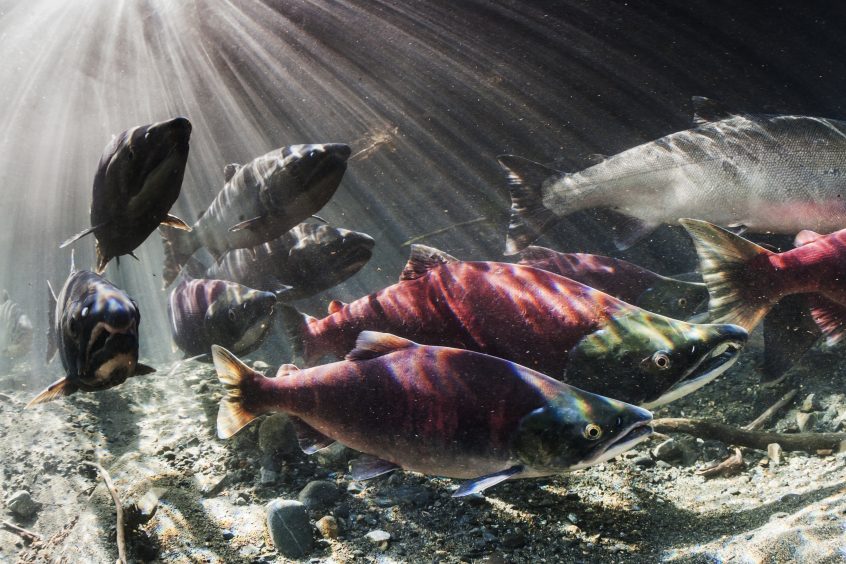Even though the 8th biennial Salmon Recovery Conference will be online this year, coming together for the sake of restoring salmon populations remains the focus as people convene remotely.
The Salmon Recovery Conference, which happens ever odd numbered year, provides an opportunity for stakeholders – government agencies, tribal governments, private forest landowners, environmentalists, recreational fishermen, scientists and others – to share firsthand knowledge experiences with one another to aid in salmon recovery efforts and is a reminder that this is a shared responsibility.
According to organizers, the conference theme, Building a Movement, reflects the “importance of coming together to grow our partnership base” while recognizng the progress made thus far. The ultimate goal is to continue building on past successes to complete the work that began 22 years ago to recover the state’s iconic salmon.
According to conference organizers:
“The Salmon Recovery Conference is an important event for sharing information and improving salmon recovery in Washington. The conference began in 2007 as a place to discuss on-the-ground salmon recovery projects and how to implement them better. The conference has grown, and now includes recent research and policy discussions about salmon recovery and how salmon recovery benefits human society.”
Salmon hold a special place in the hearts of Washington residents. From this iconic fish we find food, recreation and economic opportunity. Salmon are very much a part of our cultural identity and a representation the best aspects of Washington state like clean water, environmental stewardship, natural beauty and an economy that was built on natural resources.
That is why when salmon populations began to dwindle and many species were listed as threatened or endangered throughout much of the state, a coalition of federal and state officials, private forestland owners, tribal governments, environmentalists and local governments came together to help recover this celebrated fish. In 1999, the Washington state Legislature passed the Salmon Recovery Act.
Often referred to as the Forests and Fish Law, the Salmon Recovery Act is a landmark collaboration that applies science-based forest practices and regulations to guide the preservation of more than 60,000 miles of streams running through 9.3 million acres of state and private forestland.
Working with local, state and federal agencies, private forestland owners have invested $333 million to remove culverts and rehabilitate forest streams. To date, forestland owners have reopened 6,200 miles of fish habitat by removing 8,100 barriers and improving private road systems to prevent runoff from reaching streams.
The Forests and Fish Law is part of the Habitat Conservation Plan, a 50-year land management strategy designed to protect endangered or potentially endangered plant and animal species and their habitats. Guided by science and proven-effective forest practices, the Forests and Fish Law uses the best available data to ensure that the objectives of restoring wildlife habitat and protecting water quality for fish and wildlife are being met.
In addition to a keynote address that focuses on the conference theme, participants also will learn more about the Elwha Dam removal and review a case study of the Upper Columbia River – which reported last year that salmon began spawning above the Grand Coulee Dam for the first time in more than 80 years. The three-day conference also will provide networking opportunities and breakout sessions focused on climate change, invasive species, emerging science, fish passage, water quality, orcas, monitoring and other topics related to salmon recovery.
The virtual Salmon Recovery Conference runs April 28 – 30. To learn more about the Salmon Recovery Conference or to register, click here.
